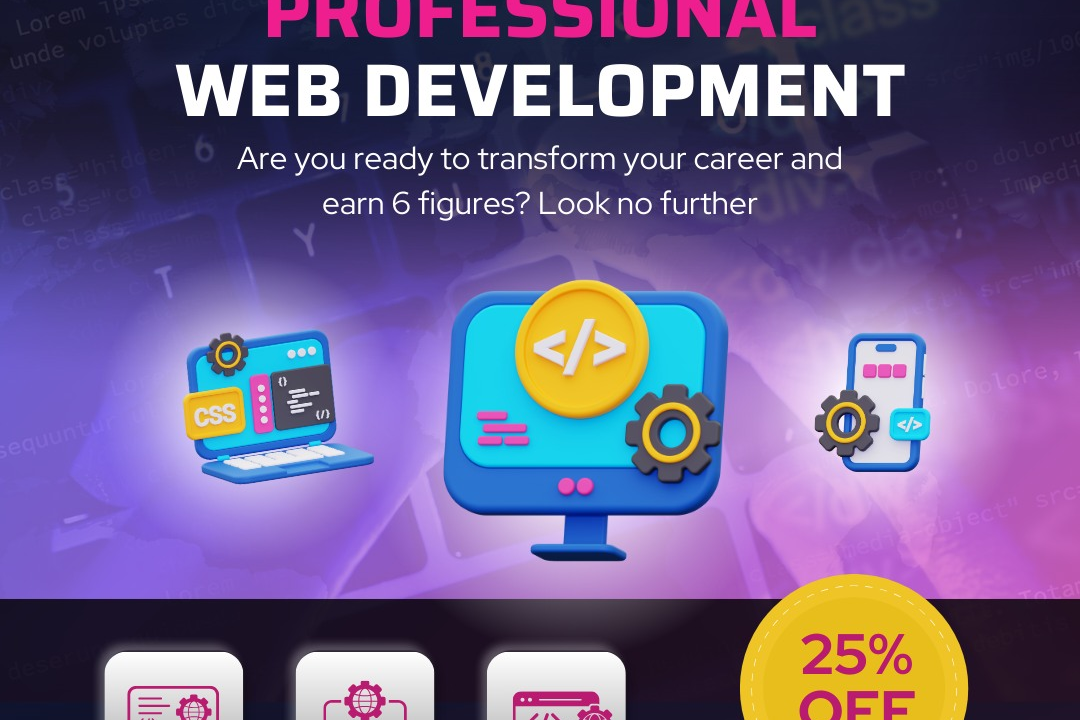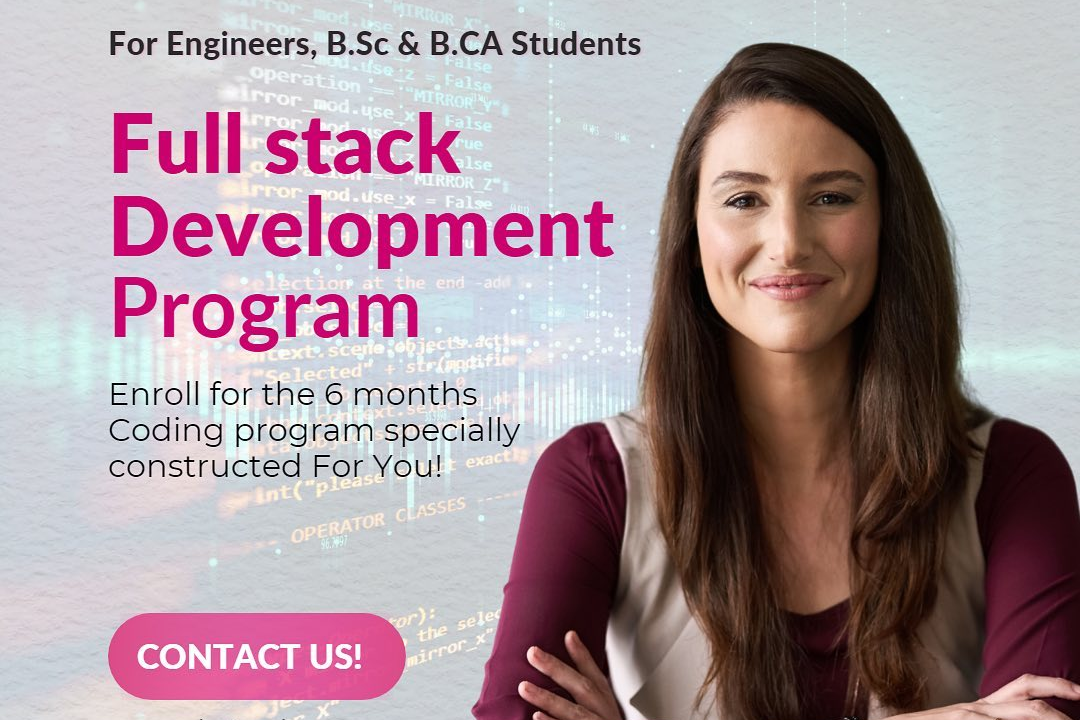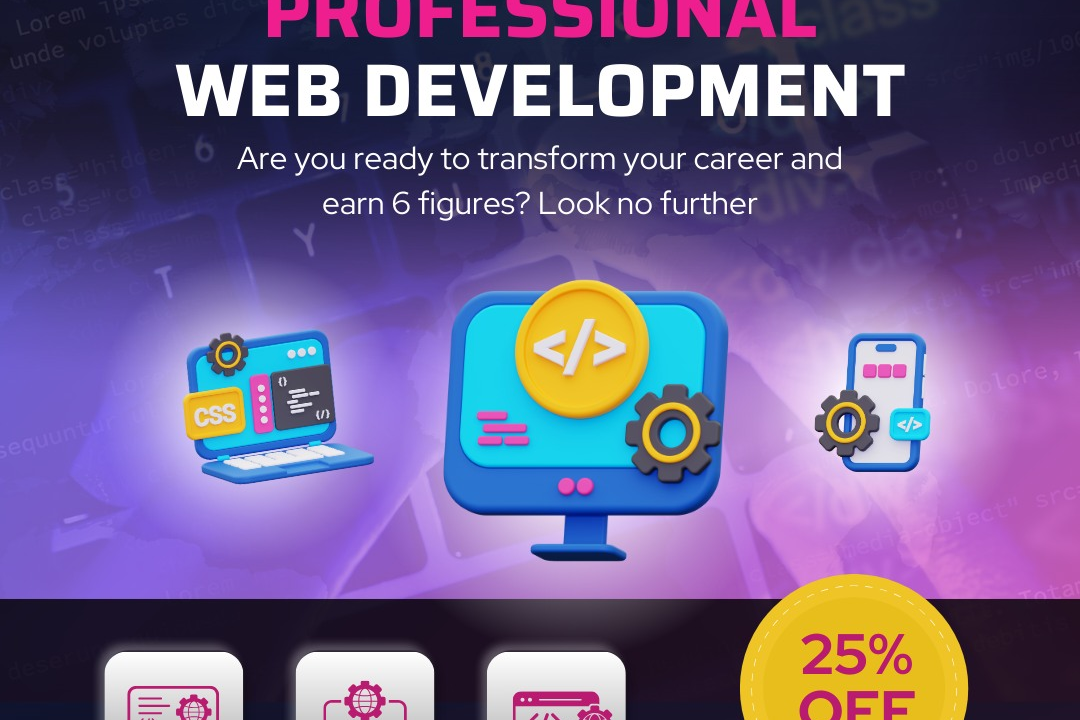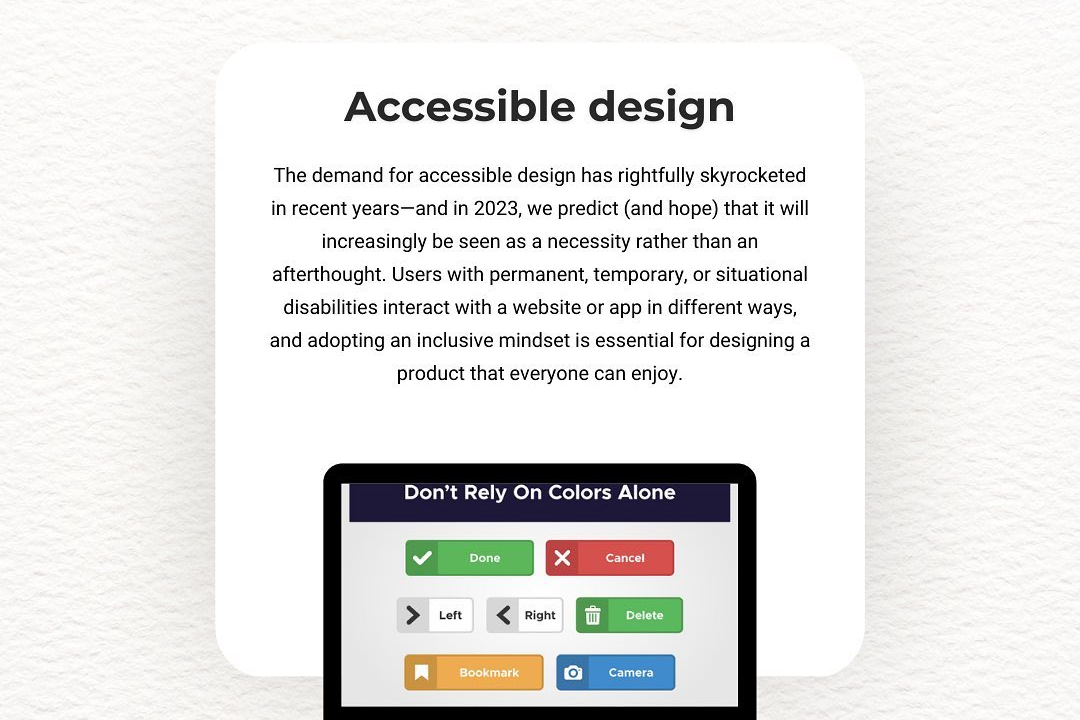Common Php Programs
Common PHP programs are essential scripts that enable web developers to implement dynamic functional
Common Php Programs
Common PHP programs are essential tools for web developers, as they facilitate the creation of dynamic and interactive web applications. These programs provide ready-made solutions for frequently encountered tasks, such as user authentication, form handling, and database interactions, allowing developers to save time and reduce errors. By leveraging these scripts, developers can quickly implement complex functionalities like login systems, content management, and data processing, leading to more efficient workflow and enhanced user experiences on websites. Overall, common PHP programs serve as building blocks that enable developers to focus on crafting unique features and improving application performance.
To Download Our Brochure: https://www.justacademy.co/download-brochure-for-free
Message us for more information: +91 9987184296
Common PHP programs are essential tools for web developers, as they facilitate the creation of dynamic and interactive web applications. These programs provide ready made solutions for frequently encountered tasks, such as user authentication, form handling, and database interactions, allowing developers to save time and reduce errors. By leveraging these scripts, developers can quickly implement complex functionalities like login systems, content management, and data processing, leading to more efficient workflow and enhanced user experiences on websites. Overall, common PHP programs serve as building blocks that enable developers to focus on crafting unique features and improving application performance.
Course Overview
The “Common PHP Programs” course at JustAcademy is designed to equip learners with essential skills in PHP programming by exploring a series of widely-used PHP scripts and applications. Through hands-on projects and real-time coding exercises, students will gain practical experience in building dynamic web applications, managing user authentication, handling form submissions, and interacting with databases. The course emphasizes best practices and efficient coding techniques, enabling participants to streamline their development process. Ideal for beginners and intermediate developers alike, this course provides a robust foundation to tackle common programming challenges and enhance web functionality, setting the stage for more advanced PHP development.
Course Description
The “Common PHP Programs” course at JustAcademy is designed to provide learners with practical experience in PHP programming by exploring frequently used scripts and applications. Participants will engage in hands-on projects focusing on key topics such as user authentication, form handling, and database interaction. This course aims to strengthen foundational skills and impart best coding practices, enabling students to efficiently build dynamic web applications. Whether you’re a beginner looking to start your programming journey or an intermediate developer seeking to enhance your skill set, this course offers valuable insights into tackling everyday programming challenges with PHP.
Key Features
1 - Comprehensive Tool Coverage: Provides hands-on training with a range of industry-standard testing tools, including Selenium, JIRA, LoadRunner, and TestRail.
2) Practical Exercises: Features real-world exercises and case studies to apply tools in various testing scenarios.
3) Interactive Learning: Includes interactive sessions with industry experts for personalized feedback and guidance.
4) Detailed Tutorials: Offers extensive tutorials and documentation on tool functionalities and best practices.
5) Advanced Techniques: Covers both fundamental and advanced techniques for using testing tools effectively.
6) Data Visualization: Integrates tools for visualizing test metrics and results, enhancing data interpretation and decision-making.
7) Tool Integration: Teaches how to integrate testing tools into the software development lifecycle for streamlined workflows.
8) Project-Based Learning: Focuses on project-based learning to build practical skills and create a portfolio of completed tasks.
9) Career Support: Provides resources and support for applying learned skills to real-world job scenarios, including resume building and interview preparation.
10) Up-to-Date Content: Ensures that course materials reflect the latest industry standards and tool updates.
Benefits of taking our course
Functional Tools
1 - PHP: PHP is the core programming language utilized in this course. It is a server side scripting language designed specifically for web development. With its simple syntax and extensive community support, PHP allows students to create dynamic web applications. As they learn PHP fundamentals, students will realistically implement code snippets, functions, and various PHP frameworks, enabling them to efficiently handle back end tasks.
2) XAMPP: XAMPP is an open source web server solution that combines Apache, MySQL, PHP, and Perl. In this course, XAMPP serves as the development environment where students can develop and test their PHP applications locally. It simplifies the installation process for these essential components by packaging them into one easy to use application. This environment enables seamless testing and debugging, ensuring that students can view their coding results instantly.
3) MySQL: MySQL is the relational database management system used in conjunction with PHP for storing and managing data. Students will learn how to interact with databases, creating tables, executing CRUD (Create, Read, Update, Delete) operations, and performing queries. With MySQL, learners can effectively manage back end data integration, boosting their ability to create robust data driven applications.
4) HTML/CSS: While PHP handles server side processing, students will also learn the importance of HTML (HyperText Markup Language) and CSS (Cascading Style Sheets) to structure and style their web applications. Mastering HTML and CSS empowers learners to create user friendly interfaces, enhancing the overall aesthetic and usability of their projects. This combination allows for a holistic understanding of front end and back end development.
5) Git: Git is a version control system that students will use to manage their code. Learning Git allows them to track changes, collaborate with others, and revert to previous versions of their projects. This essential tool is a fundamental aspect of modern software development, helping developers to ensure code stability and maintain organization throughout the coding process.
6) Visual Studio Code: Visual Studio Code (VS Code) is a widely used code editor known for its powerful features and support for multiple programming languages, including PHP. Students will utilize VS Code to write and manage their code more effectively. Its features, such as syntax highlighting, debugging tools, and extensions, provide a user friendly environment that enhances productivity and coding efficiency during the training program.
7) Composer: Composer is a dependency manager for PHP that helps students manage libraries and packages needed for their projects. With Composer, learners will understand how to include external libraries efficiently, streamline the installation process, and ensure their projects use the correct versions of libraries. This tool is vital for developing modern PHP applications and enhances project maintainability.
8) Frameworks (Laravel/Symfony): Understanding PHP frameworks is crucial for building scalable and maintainable web applications. In this course, students will explore popular frameworks like Laravel and Symfony, which provide robust tools and libraries for rapid application development. By leveraging these frameworks, learners will grasp MVC (Model View Controller) architecture, routing, and ORM (Object Relational Mapping), allowing them to develop sophisticated applications with cleaner code and enhanced security.
9) APIs (RESTful Services): As part of the course, students will learn how to create and consume RESTful APIs using PHP. They will gain insights into how APIs enable different software systems to communicate with each other. By developing APIs, learners will be equipped to integrate their applications with third party services, expand functionality, and provide data to front end frameworks or mobile applications.
10) Testing and Debugging: A robust understanding of testing methodologies is essential for maintaining code quality. Students will be introduced to unit testing and functional testing in PHP using tools like PHPUnit. By incorporating testing from the onset, learners will ensure that their code works as intended, catch bugs early, and implement changes confidently, ultimately leading to more reliable software development practices.
11 - Deployment: Understanding the deployment process is crucial for getting applications live. Students will learn how to deploy their PHP applications to popular hosting services. This will cover the basics of server configuration, file transfer protocols (FTP), and domain setup, enabling learners to bring their projects from development to production seamlessly.
12) Security Best Practices: Security is a critical component of web development. Students will explore common security threats such as SQL injection, XSS (Cross Site Scripting), and CSRF (Cross Site Request Forgery). By learning security best practices, they will understand how to safeguard their applications against vulnerabilities and implement measures like input sanitization, secure password handling, and HTTPS.
13) User Authentication and Authorization: A fundamental aspect of web applications is user management. The course will cover how to implement user authentication and authorization mechanisms, including session management, password hashing, and role based access control (RBAC). By mastering these concepts, students will create secure environments for their users and manage permissions effectively.
14) Front End Integration with PHP: Students will gain insights into how PHP interacts with front end technologies. This includes learning how to generate dynamic content with PHP, handle form submissions, and pass data between the server and client. Understanding this interaction enables learners to create seamless user experiences and improve application functionality.
15) Project Management Principles: To successfully complete real time projects, students will be introduced to project management methodologies such as Agile and Scrum. Understanding these principles will help learners plan their projects effectively, collaborate with team members, and deliver high quality software on time.
By incorporating these additional points into the curriculum, students of JustAcademy will acquire a comprehensive skill set that prepares them for real world challenges in PHP development and equips them for a successful career in the tech industry.
Browse our course links : https://www.justacademy.co/all-courses
To Join our FREE DEMO Session:
This information is sourced from JustAcademy
Contact Info:
Roshan Chaturvedi
Message us on Whatsapp:
Email id: info@justacademy.co












